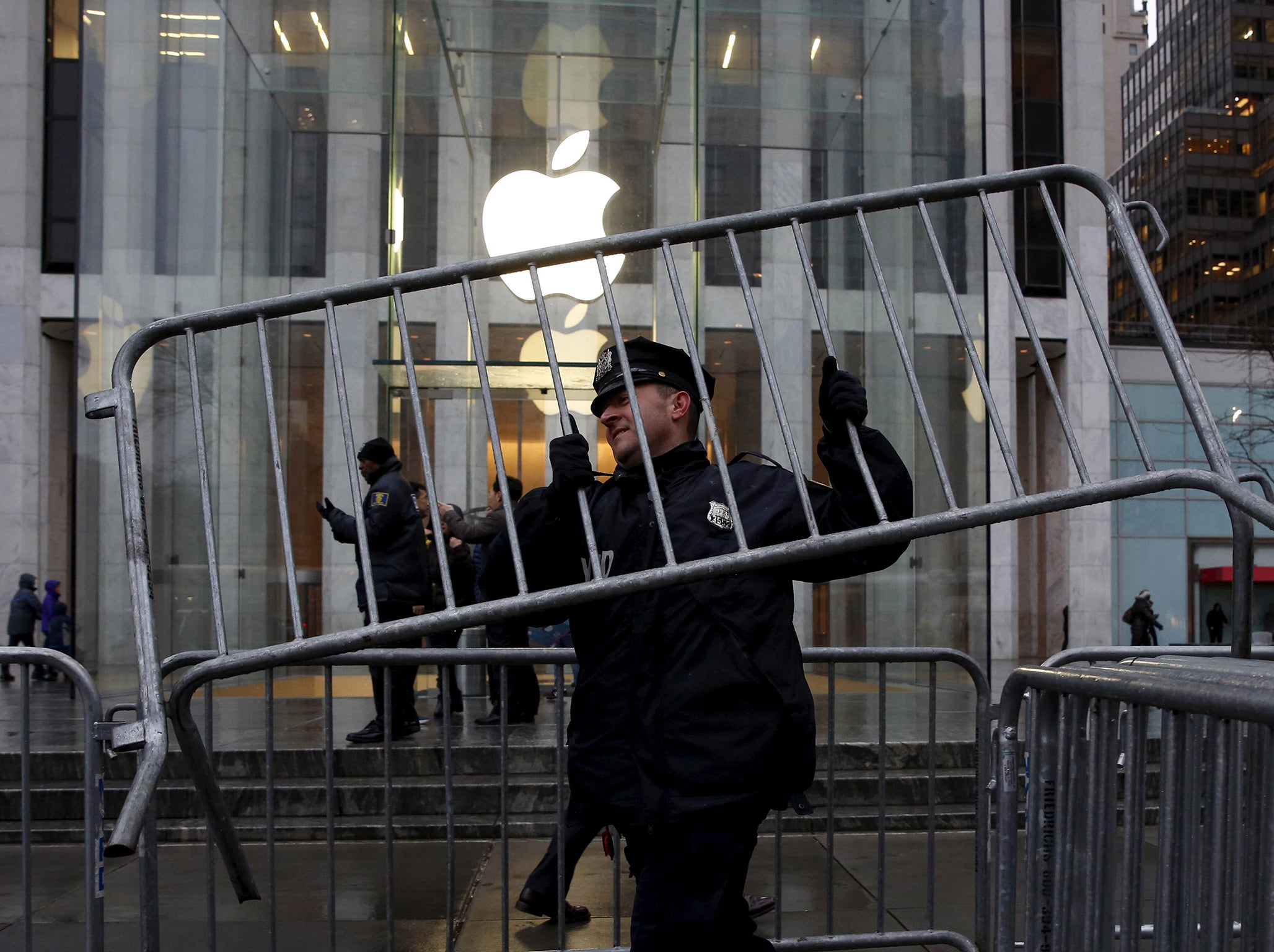Apple fight with FBI over unlocking terrorist's iPhone should never have happened, company says
The company says that it will continue to increase the security in its products, including presumably attempting to limit the mysterious security hole that let the government in

Your support helps us to tell the story
From reproductive rights to climate change to Big Tech, The Independent is on the ground when the story is developing. Whether it's investigating the financials of Elon Musk's pro-Trump PAC or producing our latest documentary, 'The A Word', which shines a light on the American women fighting for reproductive rights, we know how important it is to parse out the facts from the messaging.
At such a critical moment in US history, we need reporters on the ground. Your donation allows us to keep sending journalists to speak to both sides of the story.
The Independent is trusted by Americans across the entire political spectrum. And unlike many other quality news outlets, we choose not to lock Americans out of our reporting and analysis with paywalls. We believe quality journalism should be available to everyone, paid for by those who can afford it.
Your support makes all the difference.Apple has responded to the FBI dropping its long and often passionate case against the company, criticising the US government for ever bringing the case.
The FBI has said that the case is no longer needed since it managed to use a mysterious method to get into the much-discussed phone. But Apple responded, arguing that the “case should never have been brought” in the first place.
The case — which was fought passionately and in public — revolved around an iPhone used by a California ass shooter. The FBI argued that Apple should be forced to break into the handset, but the company refused to do so.
And, after the case, it said that it would continue to work harder to make its products more difficult for people including law enforcement to break into.
FBI Assistant Director David Bowdich said Monday that examining the iPhone was part of the authorities' effort to learn if the San Bernardino shooters had worked with others or had targeted any other victims. "I am satisfied that we have access to more answers than we did before," he said in a statement.
Apple’s statement in full
“From the beginning, we objected to the FBI's demand that Apple build a backdoor into the iPhone because we believed it was wrong and would set a dangerous precedent. As a result of the government’s dismissal, neither of these occurred. This case should never have been brought.
“We will continue to help law enforcement with their investigations, as we have done all along, and we will continue to increase the security of our products as the threats and attacks on our data become more frequent and more sophisticated.
“Apple believes deeply that people in the United States and around the world deserve data protection, security and privacy. Sacrificing one for the other only puts people and countries at greater risk.
“This case raised issues which deserve a national conversation about our civil liberties, and our collective security and privacy. Apple remains committed to participating in that discussion.”
Join our commenting forum
Join thought-provoking conversations, follow other Independent readers and see their replies
Comments